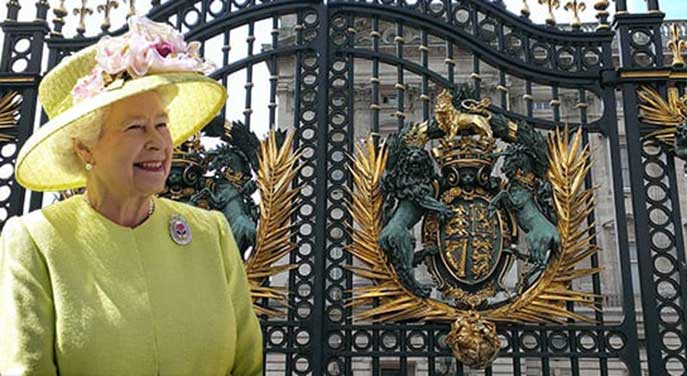In my youth, I was embarrassed by Canada’s (seemingly) anachronistic constitutional monarchy.
Why must we have a Queen, I raged? She doesn’t even live in our country. Why can’t we be a republic, like the United States?
It wasn’t until recently that I began to question this view. Looking south of the border, I’m reminded that when (not if) democracy fails, our constitutional monarchy could well save us from a descent into political anarchy.
So what’s the risk that democracy will fail?
Examining history, I’d have to say the odds are not in favour of democracy. In fact, not one has stood the test of time.
Consider Goldsworthy Lowes Dickinson’s description, in The Greek View of Life (1896), of the collapse of the world’s first and some say the purist democracy, classical Athens:
“Beginning, on its (Athens) first emergence from an earlier aristocratic phase, with an energy that inspired without shattering the forms of discipline and law, it dissolved by degrees this coherent whole into an anarchy of individual wills, drawn deeper and deeper, in pursuit of mean and egoistic ends, into political fraud and commercial chicanery. …”
Sure sounds familiar to anyone reading the news these days.
The collapse of the Roman republic was, perhaps, even more dramatic. This militaristic agricultural republic (and semi-democracy) unravelled in similar fashion as giant egos – Julius Caesar included – vied for power. The elite senatorial class enriched itself, as it submerged first the property rights and then the political influence of the general Roman population.
A point of no return emerged in each case; a point where the values and sense of common purpose – which had made these ancient democracies the pride of their age – unravelled, being replaced by unrestrained greed and lust for power.
Ancient history you might say. But there are plenty of recent examples to draw from. In their 2018 book How Democracies Die, Steven Levitsky and Daniel Ziblatt describe an eerily similar process happening today, right before our eyes, in Vladimir Putin’s Russia, Recep Tayyip Erdogan’s Turkey and Viktor Orban’s Hungary.
How does this unravelling occur?
The rot begins with the loss of civil society and a nation’s sense of common purpose. For a democracy to operate, there needs to be an ethical foundation, a sense that citizens have each other’s back.
In the absence of a dedication to uphold democratic principles, the governing and economic institutions that represent the nation begin to degrade, metamorphosing into agents of the elite. Zimbabwe is a classic modern example.
To quote Levitsky and Ziblatt, in reference to Russia, Turkey and Hungary: “Bit by bit the guardrails of democracy were torn down, as institutions meant to serve the public became tools of the ruling party, then were weaponized to punish and intimidate that party’s opponents. On paper these countries are still democracies; in practice they have become one-party regimes.”
So what can a constitutional monarch do to save the day?
It’s commonplace in Canada and other former British colonies to imagine that a constitutional monarch is simply a symbol and the royals are celebrities.
However, behind the scenes, constitutional monarchs hold enormous constitutional powers. The ‘sharing of power’ between a monarch and their constitutionally-organized government (like Canada’s Parliament) is a legal sleight of hand.
In reality, there are depths to the role of the constitutional monarch that remain hidden from view, buried deep in the arcane subtext of our written (and Britain’s unwritten) Constitution.
The reality is that our democratic institutions exist at the legal whim of Queen Elizabeth in London.
At a stroke of the pen, all executive power could legally revert to the Crown. It’s why we swear allegiance to the Queen and call our Parliament “Her Majesty’s Government.”
So imagine a situation where the insanity building in the United States transcends its borders and begins to infect the political life of Canada.
Imagine a place where truth becomes falsehood and virtue becomes heresy. What if institutions designed to protect Canadians become tyrannical?
What if Canada’s chartered banks, for instance, begin foreclosing on a whole generation of young people, robbing them of their property and savings?
It’s a not-unlikely scenario when the global financial crisis returns.
The monarchical safety lever could be pulled in Canada, dissolving Parliament, and suspending elections and the Supreme Court. The Queen would regain absolute control of all things Canadian, including its banks.
That notion used to frighten me deeply.
Now I believe it may be our salvation.
Robert McGarvey is chief strategist for Troy Media Digital Solutions Ltd., an economic historian and former managing director of Merlin Consulting, a London, U.K.-based consulting firm. Robert’s most recent book is Futuromics: A Guide to Thriving in Capitalism’s Third Wave.
![]()
The views, opinions and positions expressed by columnists and contributors are the author’s alone. They do not inherently or expressly reflect the views, opinions and/or positions of our publication.

